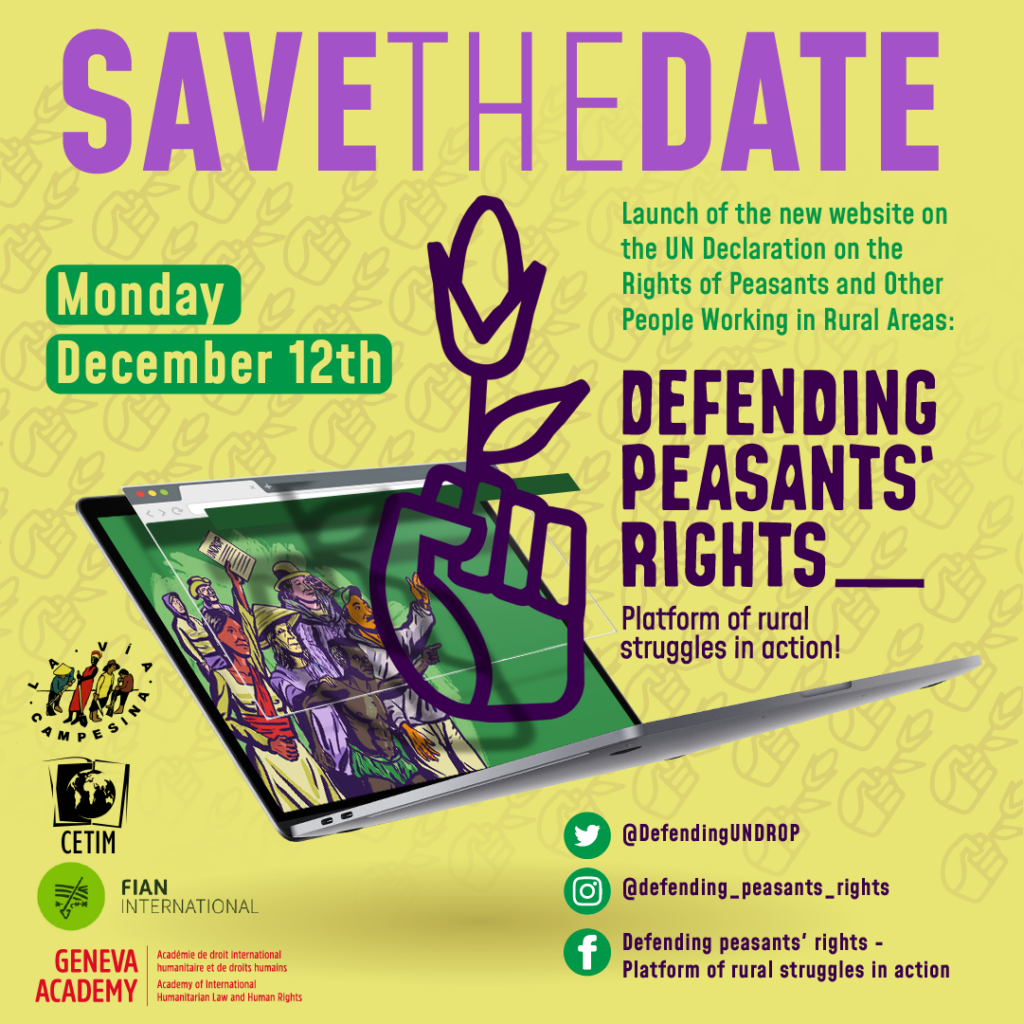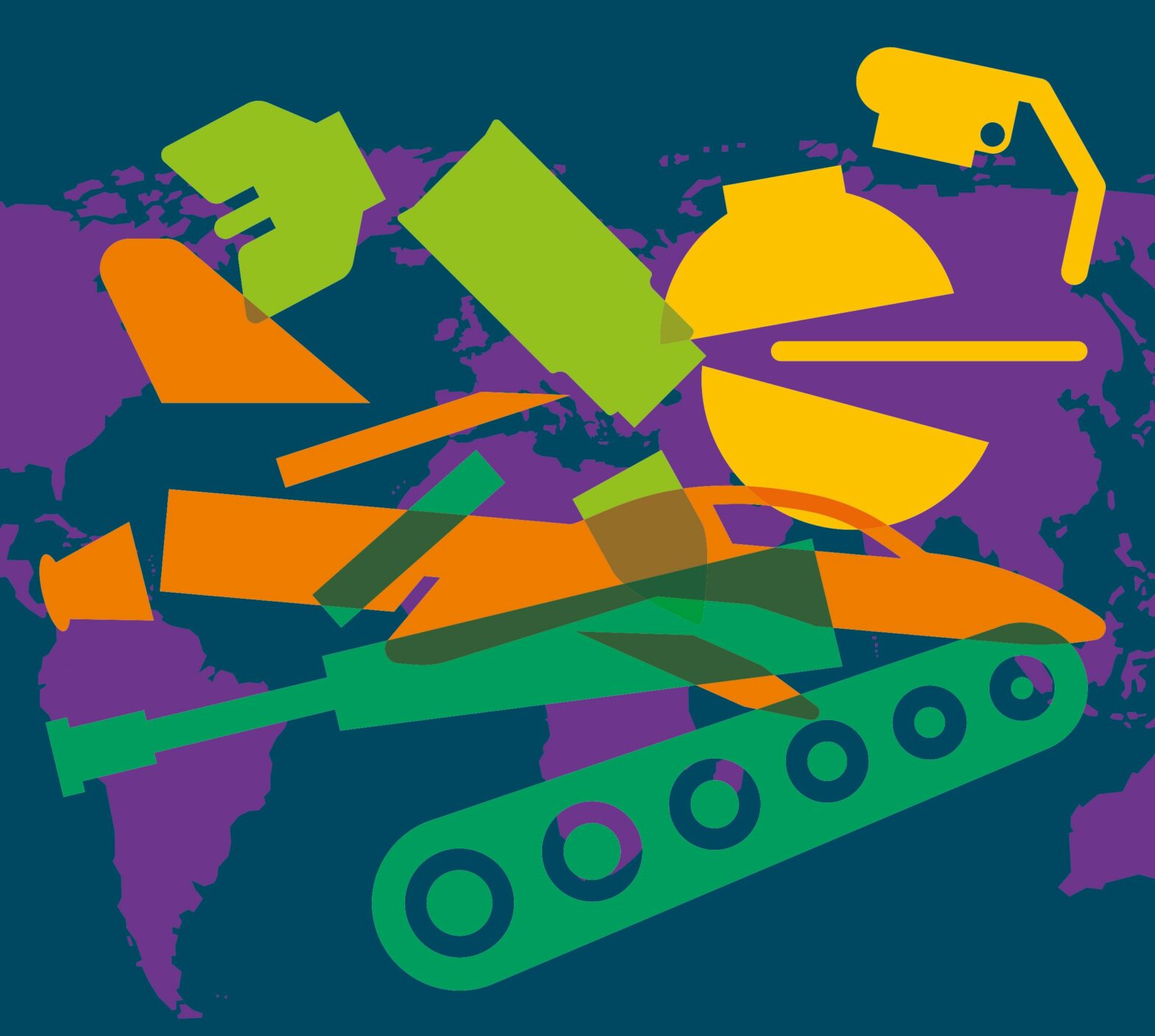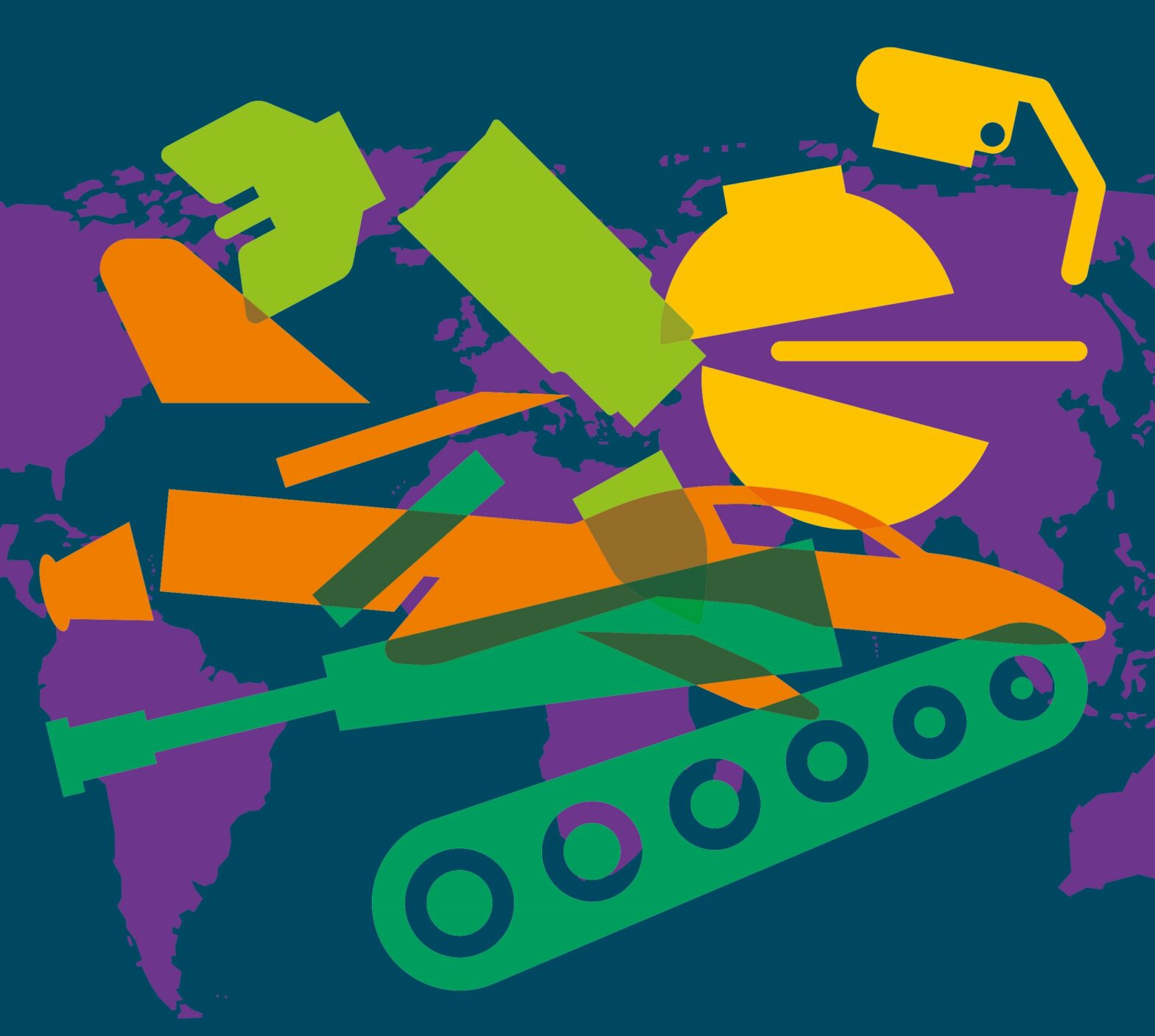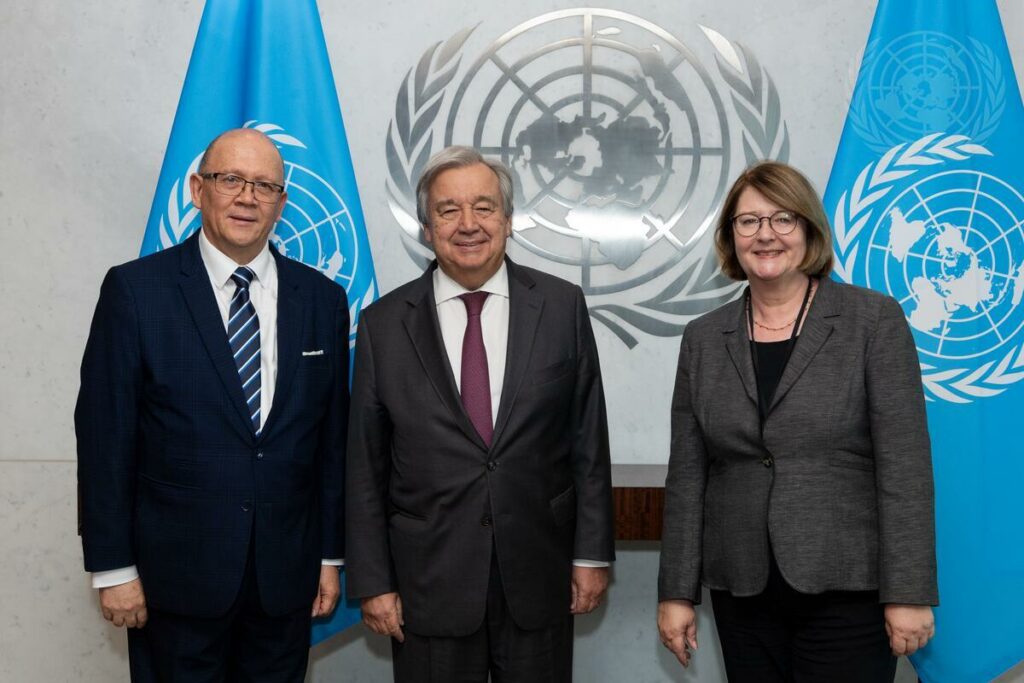Share Twitter Facebook Email Copy URL
FROM UNDROP’S ADOPTION TO UNDROP’S IMPLEMENTATION[1]
The United Nations (UN) General Assembly adopted the UN Declaration on the rights of peasants and other people working in rural areas (UNDROP) in 2018, by a large majority of the UN Members States – with 121 voting in favour, 8 against, and 54 abstentions.[2] The adoption of this new instrument is the result of 20 years of mobilisation by La Via Campesina and its allies, and 6 years of negotiation at the UN Human Rights Council.[3] It aims to respond to the multiple forms of discrimination faced by peasants and other people working in rural areas, who are the first victims of extreme poverty and hunger, and to protect and promote their rights and dignity.
UNDROP’s implementation represents a unique opportunity to re-balance power relations in rural areas, and to guarantee that states respect, protect and fulfil the rights of peasants and other people working in rural areas, who have too often been marginalised within international, regional and national laws and policies. It is key for redressing various forms of discrimination and historical disadvantage that have affected peasants and other people working in rural areas for too long. In UNDROP’s implementation, particular attention shall be paid to the rights and special needs of those who have historically been discriminated against, including older persons, youth, children, persons with disabilities and women, who play a key role in local and global food security, but are the first victims of discrimination and with girls represent 70% of the world’s hungry.
At the occasion of the 4th anniversary of UNDROP’s adoption, in December 2022, La Via Campesina, CETIM, FIAN International and the Geneva Academy of International Humanitarian Law and Human Rights are launching a new website on UNDROP, with the support of the Rosa Luxemburg Stiftung, Action de Carême and HEKS/EPER.[4]
FOR PEASANTS AND OTHER PEOPLE WORKING IN RURAL AREAS, WITH THEIR PARTICIPATION
UNDROP expresses deep concern at the structural discrimination faced by peasants and other people working in rural areas, who disproportionally suffer from, inter alia, poverty, hunger and malnutrition, forced evictions and displacements (Preamble and art. 3.3), and it recognizes their right to participation in decision-making processes to reverse that discrimination (art. 2.3 and 10.1).
To guarantee that enabling right, UNDROP provides that states shall promote participation, directly and/or through their representative organizations, by peasants and other people working in rural areas in decision-making processes that may affect their lives, land and livelihoods, such as the elaboration of international agreements and standards (art. 2.4), food safety, labour and environmental standards (art. 10.2), legislation covering the evaluation and certification of their products (article 11.3), seed policies, plant variety protection and other intellectual property laws, certification schemes and seed marketing laws (art. 19.8), and the undertaking of agricultural research and development (art. 19.7).
States shall also respect the establishment and growth of strong and independent organizations of peasants and other people working in rural areas (art. 10.2), adopt measures to ensure that they have access to relevant, transparent, timely and adequate information in a language and form and through means adequate to their cultural methods (art. 11.2), and facilitate and ensure their full and equitable access and participation in local, national and regional markets to sell their products at prices that allow them and their families to attain an adequate standard of living (art. 16.3).
UNDROP also provides that states shall formulate, in partnership with peasants and other people working in rural areas, public policies at the local, national, regional and international levels to advance and protect the right to adequate food, food security and food sovereignty and sustainable and equitable food systems that promote and protect the rights contained in the UNDROP (art. 15.5). In the implementation of the UNDROP, specialized agencies, funds and programmes of the UN system, and other intergovernmental organizations, including international and regional financial organizations, shall also consider ways to ensure the participation of peasants and other people working in rural areas (art. 27.1).

THE ROLE OF STATES
UNDROP builds on, and includes agreed language taken from a number of binding international treaties, including the International Covenant on Economic, Social and Cultural Rights, the International Covenant on Civil and Political Rights, the Convention on the Elimination of All Forms of Discrimination Against Women, the Convention on Biological Diversity and its Protocols, and the International Treaty on Plant Genetic Resources for Food and Agriculture. States must therefore play a key role in its implementation, in line with the numerous UNDROP provisions defining their obligations.
UNDROP provides that states shall respect, protect and fulfil the rights of peasants and other people working in rural areas, and shall promptly take legislative, administrative and other appropriate steps to achieve progressively the full realization of the rights set forth in UNDROP that cannot be immediately guaranteed (art. 2.1). They shall also ensure the consistency of international agreements and standards to which they are party with UNDROP (art. 2.4), and establish mechanisms to ensure the coherence of their agricultural, economic, social, cultural and development policies with UNDROP (article 15(5)). And they shall recognize the importance of international cooperation in support of national efforts aimed at implementing UNDROP (art. 2.6).
States obligations to ensure the consistency of their national laws and policies, and international agreements and standards to which they are party with UNDROP is grounded in the primacy to be given to human rights norms in international and national law (UN Charter, art. 1.3, 55.c, 56, and 103). This is valid for all states, independently of the positions that they took when UNDROP was adopted.
In the implementation of UNDROP, states shall take appropriate measures to eliminate conditions that cause or help to perpetuate discrimination, including multiple and intersecting forms of discrimination (3.3). And they shall take all appropriate measures to eliminate all forms of discrimination against peasant women and other women working in rural areas, to promote their empowerment, and to ensure that they enjoy without discrimination all the human rights and fundamental freedoms set out in the UNDROP (art. 4.2).
States should integrate UNDROP within their domestic law, for example by integrating it in a law of application, or integrate specific rights enshrined in UNDROP in their Constitutions or national laws. States should also create institutions to ensure the consistency of their laws, policies and programmes with UNDROP.
To guarantee the exercise of the rights enshrined in UNDROP without any discrimination, the UNDROP provides that states shall, inter alia, ensure fair wages and equal remuneration for work of equal value, without distinction of any kind (art. 16.6), remove and prohibit all forms of discrimination relating to the right to land, including those resulting from change of marital status, lack of legal capacity or lack of access to economic resources (art. 17.2), and guarantee access to health facilities, goods and services in rural areas on a non-discriminatory basis (art. 23.3).
To ensure that states respect the rights of peasants and other people working in rural areas, UNDROP provides that they shall, inter alia, not subject them to arbitrary arrest or detention, torture or other cruel, inhuman or degrading treatment or punishment, and not held them in slavery or servitude (art. 6.2). They shall also recognize the natural commons and their related systems of collective use and management (art. 17.3).
To protect the rights of peasants and other people working in rural areas, states shall take all necessary measures to ensure that non-State actors that they are in a position to regulate, such as private individuals and organizations, and transnational corporations and other business enterprises, respect and strengthen the rights enshrined in UNDROP (art. 2.5). Such measures include the need to protect peasants and other people working in rural areas against arbitrary or unlawful evictions and displacements (art. 17.3, 17.4 and 24.2), to ensure that no hazardous material, substance or waste is stored or disposed of on their land (art. 18.4), and to prevent risks arising from the development, handling, transport, use, transfer or release of any living modified organisms (article 20(3)). UNDROP also provides that states shall protect children of peasants and other people working in rural areas from any work that is likely to be hazardous or to interfere with the child’s education, or to be harmful to a child’s health or physical, mental, spiritual, moral or social development (art. 13.2).
Examples of ways in which states shall fulfil the rights of peasants and other people working in rural areas include; their obligations to provide them with legal assistance (art. 12.3), to give priority to landless peasants, young people, small-scale fishers and other rural workers in the allocation of public lands, fisheries and forests (art. 17.6), to support peasant seed systems, and to promote the use of peasant seeds and agrobiodiversity (art. 19.6).
At national level, it is also essential that courts protect the rights of peasants and other people working in rural areas, by directly applying UNDROP, or using it to interpret rights recognized in domestic law or other international instruments. National human rights institutions should also include the monitoring of UNDROP in their work, including through awareness raising activities, the analysis of the compatibility of laws with UNDROP, the possibility to receive complaints about violations of the rights enshrined in UNDROP, and the production of annual reports on the implementation of UNDROP for national, regional and international bodies.
THE ROLE OF INTERNATIONAL ORGANIZATIONS
UNDROP provides that UN specialized agencies, funds and programmes, and other intergovernmental organizations, including international and regional financial organizations, shall contribute to the full realization of UNDROP, including through the mobilization of, inter alia, development assistance and cooperation (art. 27.1), and that they shall promote respect for and the full application of UNDROP and follow up on its effectiveness (art. 27.2).
It is essential to increase accountability for violations of the rights enshrined in UNDROP in the UN system. The UN Human Rights Council should create a new Special Procedure – a UN Special Rapporteur or a UN Working Group composed of 5 experts – on the rights of peasants and other people working in rural areas. It is also important that it integrates UNDROP in its monitoring work, including the Universal Periodic Review, and that other UN human rights mechanisms, in particular the UN special procedures and treaty bodies, include UNDROP in their work.
A COMMON STRUGGLE
In 2018, the system of human rights protection that has developed since the adoption of the Universal Declaration of Human Rights in 1948 has been enhanced by a new instrument to protect the rights of peasants and other people working in rural areas, some of the most discriminated against and marginalized people in the world. Four years after UNDROP’s adoption, it crucial to make sure that states and international organizations take all necessary steps to implement and monitor it, with the full and meaningful participation of peasants and other people working in rural areas, and with adequate support from all of us.

Dr. Christophe Golay, Senior Research Fellow and Strategic Adviser on Economic, Social and Cultural Rights at the Geneva Academy of International Humanitarian Law and Human Rights, and Visiting Professor at the Geneva Graduate Institute.
[1] This article is largely based on Christophe Golay, The Implementation of the United Nations Declaration on the Rights of Peasants and Other People Working in Rural Areas, Geneva Academy Research Brief, 2019.
[2] UN General Assembly, Declaration on the Rights of Peasants and Other People Working in Rural Areas, 17 December 2018.
[3] On the history of UNDROP, see Coline Hubert, The United Nations Declaration on the Rights of Peasants. A Tool in the Struggle for our Common Future, CETIM, 2019; Priscilla Claeys and Marc Edelman, “The United Nations Declaration on the Rights of Peasants and Other People Working in Rural Areas”, Journal of Peasant Studies, Grassroots Voices, 2019, pp. 1-68. See also Mariagrazia Alabrese, Adriana Bessa, Margherita Brunori, Pier Filippo Giuggioli (eds),The United Nations Declaration on Peasants’ Rights, Routledge, 2022.



